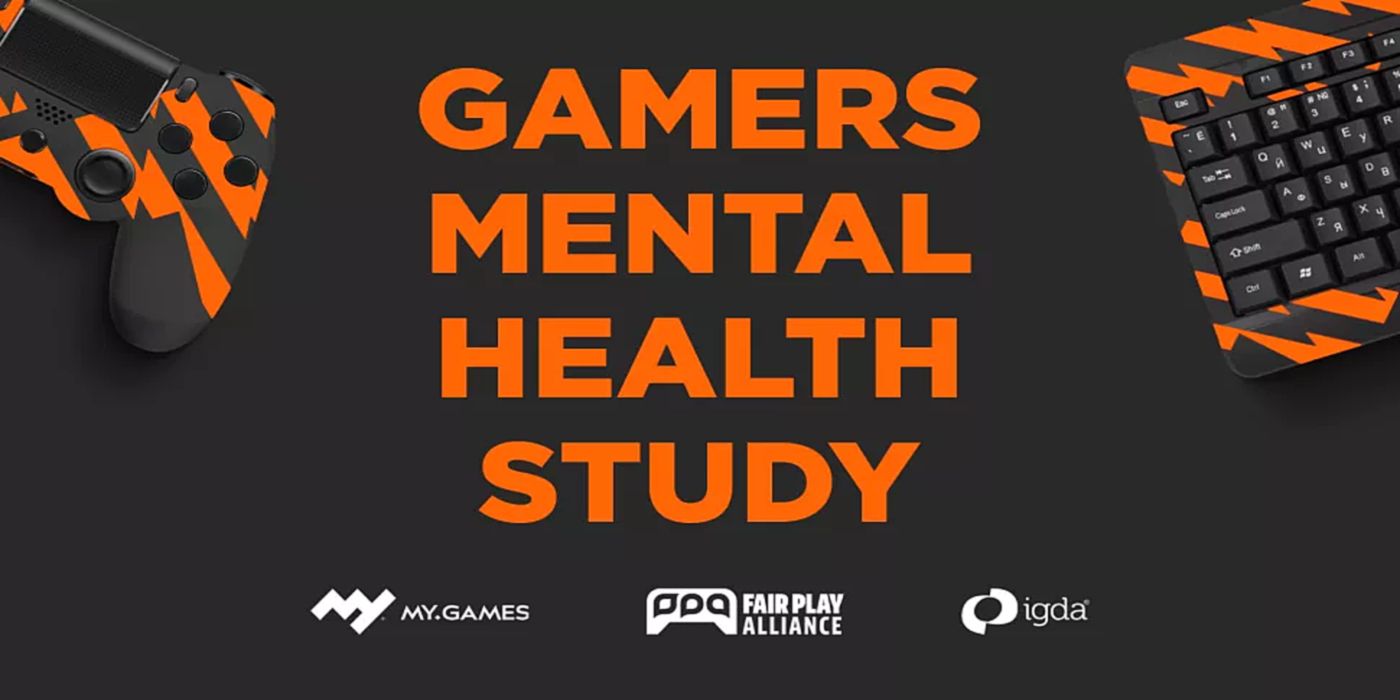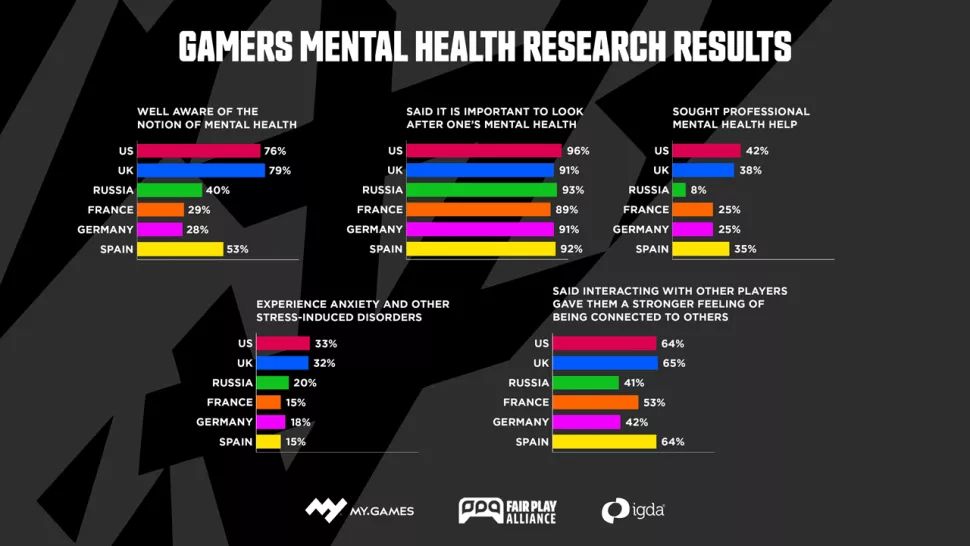
For many people, gaming is an escape from real-world pressure, and a great way to spend time with friends. And now more than ever, people are in need of some sort of online community building due to social regulations during COVID.
MY.GAMES, with the help of Fair Play Alliance and IGDA, conducted worldwide international research on gamers, with topics including mental health and cyberbullying in online matchmaking during the COVID lockdown. In total, the survey reached over 21,000 people who play videogames weekly across the United States and Europe .
RELATED: Oxford Study Suggests Playing Video Games Can Be Good for Mental Health
Based on the results of the study, gamers in the United Kingdom are the most familiarized when it comes to mental health issues, with 79% reporting that they are well aware of what mental health is. Additionally, about one-in-three gamers in both the US and UK have dealt with anxiety and other types of stress disorders within the past year.

About 42% of United States respondents have reported seeking out professional help more than once, while 63% say that they would only seek help if needed. In the United States, one of the most significant factors stated for why so many people do not seek professional help is healthcare costs. Subjects declared they would prefer online sessions with counselors or some sort of hotline.
Interestingly enough, even though the cost of treatment is cheaper in the UK, the numbers are similar to the US. About 38% of gamers in the UK report having sought out psychological help over the last year, while 64% answered they would only get it if deemed necessary. Although, only 8-12% of UK gamers listed the cost as the reason.
When asked about online gaming experiences, about 25% of gamers talk more with other online players than before lockdown restrictions. About 38% of these people report spending more time with others while playing videogames. Yet, many report voice chat cyberbullying to play a part in ruining the fun of gaming. More than half of the participants have experienced online harassment, with 52% being treated to overly offensive behavior. One in ten gamers have reported that these types of interactions have had negative effects on their mental health.
Overall, it seems that toxic behavior in video games is still prevalent in the community. Nevertheless, the amount of good that has come from people finding online companionship and how effective it has been shown. Over 60% of players in both the US and UK have reported that gaming has given them a stronger connection to others during these times. And luckily, it also seems most gamers are well aware of mental health resources in their community and how to reach out for help in case it is ever desperately needed.
MORE: Mental Health Charity Auctioning Custom Nintendo Switch
Source: Games Radar

